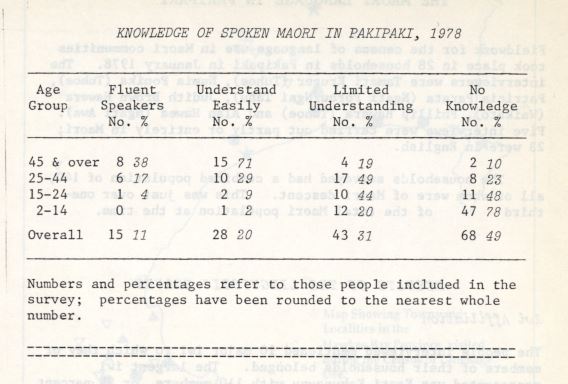-
Ngā Karere me Ngā Rauemi
News and Resources
Ngā Karere me Ngā Rauemi
News and Resources
-
Te Rangaihi Reo Māori
The Movement
Te Rangaihi Reo Māori
The Movement
-
Te Pae Kōrero
Our Community
Te Pae Kōrero
Our Community
-
Huihuinga
Events
Huihuinga
Events
-
Ngā Ara Ako
Learning Pathways
Ngā Ara Ako
Learning Pathways
-
SearchSearch
Search
Search

One person said newspapers, radio, and especially television, should do more to help teachers and parents trying to hold on to the language in a Pakeha world. People in Pakipaki who spoke the language were proud of it, because they saw it as a really important part of being Maori. Many people we spoke with said they were sorry that they no longer spoke Maori or had never learnt the language earlier.
Several people were learning Maori in night classes, while others said that it was too late for them to begin learning now. Most people supported the teaching of the language in schools or through wananga on the marae, especially for their children.
Te Matau-a-Māui | Hawke’s Bay | Hastings | 1970-79 | 5% of Māori children can speak te reo. (1970-75) | Story is by tangata whenua
















Comments